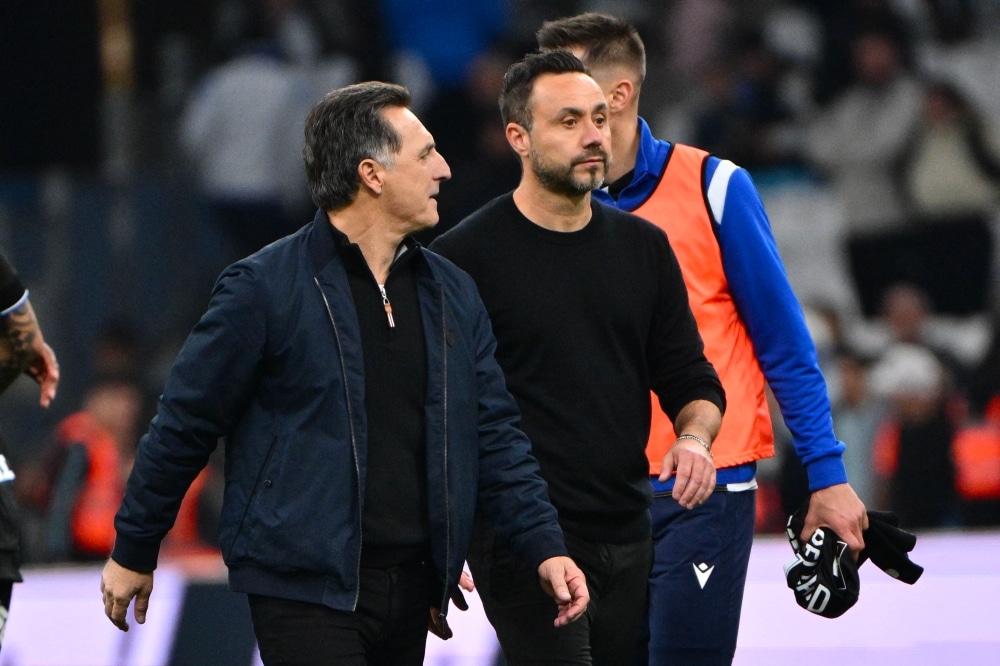It’s a strange sensation, to end up loving a movie that makes you feel physically uncomfortable for nearly its whole runtime. In Hard Truths, from veteran master filmmaker Mike Leigh, Marianne Jean-Baptiste plays a woman at war with the world, and herself, every minute. She practically vibrates with belligerence: She can’t go to the grocery store without having a run-in with the cashier; her husband has given up trying to be kind and mostly avoids her; her grown son spends most of his time locked in his room, watching aviation videos—his only relief is to leave the house for long walks, the better to escape his mother’s angry force field. Why would you care about this woman’s story? For much of the film you may be yearning to get away from her. I was.
But that’s the magic trick Leigh pulls off. If you’ve seen any of his greatest films—among them Mr. Turner, his sun-dappled 2014 study of the great and allegedly ornery Romantic painter J.M.W. Turner, or his gracefully offbeat 1990 comedy Life Is Sweet, or the other film he made featuring Jean-Baptiste, the piercing 1996 family-reconnection drama Secrets & Lies—you won’t be surprised that he makes it work, but you won’t fully understand how. Though all his films are marked by a supreme but subtle emotional generosity, somehow, mysteriously, no two of them are ever alike. Every character he and his actors create is a unique and splendid oddball, meaning that collectively, they can drive us crazy in myriad ways. For those of us who love Leigh’s films, that doesn’t drive us away—it’s the magnet that draws us closer. I remember, long ago, seeing his 1976 TV play Nuts in May, starring his frequent collaborator Alison Steadman as one-half of a self-righteous, bickering married couple who ostentatiously go “back to the land,” and being driven so crazy by its scrambly yet uncannily observant humor that I wanted to jump out of my skin. But boy, has that experience stuck with me. Leigh’s movies offer a way of preparing you for both your best and worst daily encounters, those times when you find yourself interacting with people whose behavior is so grating, so unpleasant, or even so weirdly wonderful, that you barely know how to respond. Leigh has been there; he’s already lit the path forward.
Read more: The 10 Best Movies of 2024

Even so, Jean-Baptiste’s character in Hard Truths, a Caribbean-British woman named Pansy, is a special case. In our first glimpse of her, she awakens, with a start in a darkened bedroom, a strange cocoon only temporarily sealed off from the real world. She opens the drapes with a slashing motion; the sunlight outside, and the pigeons placidly cooing around the sill, are an affront, the first of her many grievances. Her husband Curtley (David Webber) has already left for work. As she brutally polishes—yes, polishes—an already spotless leather couch in the impossibly tidy family living room, her son Moses (Tuwaine Barrett) tries to tiptoe out for his walk. She barks at him, ordering him to put the kettle on for her tea—but not to fill it up, as that’s wasteful. When Curtley returns from work, she rebuffs his greeting. As he heads out to the yard, eager to get away, she berates him for traipsing through her pristine house with his shoes on. This is only the beginning of her litany of grievances: A banana peel Moses leaves on the counter instigates a lecture about how lazy and worthless he is. At the dinner table, her monologue fixates on cheerful charity workers lurking outside supermarkets, dogs in coats, and the way a neighbor dresses her baby in an ensemble outfitted with pockets: “What’s a baby got pockets for? What’s it going to keep in its pocket, a knife?”
Bit by bit, with subtle brushstrokes, Leigh fills in bits of Pansy’s backstory. She has a sister, Chantelle (Michele Austin, in a radiant sunflower of a performance), a hairdresser and mother of two grown daughters, who’s as open-heartedly cheerful as Pansy is sour. Their mother has been dead for five years—it seems Pansy hasn’t been able to process her grief, but that’s not the whole of her problem. She complains about feeling ill all the time: she’s plagued by migraines, fatigue, myriad aches and pains. Are these psychosomatic symptoms, specters conjured by her miserable brain? Or has her persistent unhappiness caused serious health issues? Both explanations are equally plausible. Leigh knows we don’t need to know all the “whys.”

What he’s really interested in is the “what,” and Jean-Baptiste, in this astonishing performance, walks hand-in-hand with him to fill in the mosaic of this character. It’s not hard, given what many of us know about depression, to render an amateur diagnosis of Pansy’s problem. But she’s a person, not a condition: that’s what Jean-Baptiste conveys, with heart-rending specificity. For one thing, Pansy is sharply observant in a way that pleasant people never are. Why does a baby need pockets? She could be a great writer, or a comedian, if only she could sand off just a bit of her rage. Chantelle seems almost infinitely patient with her sister, but even she loses her cool now and then. As they place flowers at their mother’s grave—Pansy won’t even touch the bouquets Chantelle has brought, instead spending the whole time haranguing her sister about god-knows-what—Chantelle finally breaks. “Why can’t you enjoy life?” she snaps, echoing something their mother had once said to Pansy. “I don’t know!” Pansy shoots back, and as she does so, her face contorts into that of a warrior issuing a battle cry. This is where we see the wasteland of Pansy’s heart: it’s a garden she no longer knows how to tend, if she ever did. And somehow, Leigh and Jean-Baptiste have brought us, as well, to a place of no return. We reach out to Pansy rather than recoil, even as we might ask ourselves why we’re not turning away.
That’s the magic of Leigh; it’s white magic, not the dark kind, drawing out compassion we almost don’t want to feel. Hard Truths was shot by Leigh’s frequent collaborator, the great cinematographer Dick Pope, who died in October. We often think of good cinematography as a way of capturing gorgeous vistas or serving up bold colors. Pope’s work in Hard Truths is something else: every frame is clear, concise, controlled, yet the emotions contained within are a kind of cosmic energy picked up by the camera. We see these invisible, quivering molecules of life as clearly as Pope does: this is his last gift to us. Through his lens, as it filters Leigh’s vision, we see Chantelle reaching out to her sister across a vast, uncrossable chasm, Curtley so fed up with his wife he can no longer even pretend to care, Moses attempting to please his unpleasable mother with an offering of flowers. But mostly, we see Pansy. And when we see her out in the world, in our own world, we’ll recognize her. Leigh has already introduced us, not out of politeness but out of infinite kindness.










